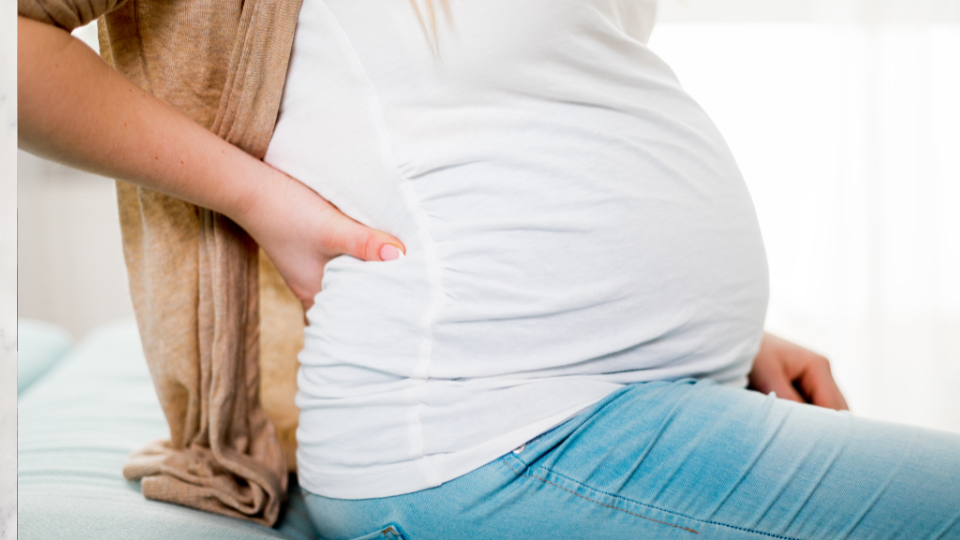Handle Nose Swelling During Pregnancy
Swelling is a common and often uncomfortable part of pregnancy. The increased fluid retention that occurs is necessary to support the growing baby but can affect various parts of the body. While we typically think of swollen ankles and feet, this excess fluid can also lead to swelling in the face, including the nose.
Why Does Your Nose Swell In Pregnancy?
During pregnancy, your body produces more blood to support the growing fetus. This increased blood volume expands the blood vessels, and when this occurs in the nose, it can lead to a swollen and stuffy feeling. For many women, this becomes more noticeable as pregnancy progresses.
When Does Pregnancy Nose Swelling Start?
If you’re wondering when your nose might start swelling, it typically begins in the third trimester. This period coincides with other types of swelling, such as in the legs and face, as blood volume reaches its peak. The increased fluid in your body can lead to a puffier appearance, including the nose.
How Do You Get Rid Of A Swollen Nose During Pregnancy?
Here are some effective strategies I used to manage my swollen nose and help you feel more like yourself during this phase.
1. Facial Tools
Facial tools such as ice rollers and gua sha can be incredibly helpful in reducing swelling. These tools are designed to move stagnant lymphatic fluid away from the face, which can reduce puffiness.
How To Use A Facial Tool for Swollen Nose:
- Facial Roller or Gua Sha: I used a gua sha tool and kept it in the shower for daily use. The combination of water and face wash creates a smooth glide, allowing you to use the tool easily.
- Application: Start at the middle of your face, placing the gua sha at a flat angle on the bridge of your nose. Sweep it gently either left or right along the sides of your nose and up to the cheekbone.
- Direction: Make sure to move the tool towards the heart to help drain excess fluid from your face. This technique not only reduces nose swelling but can also improve the overall appearance of your face.
Using facial tools can be a relaxing part of your skincare routine and may also help with other issues like acne.
2. Nose Contouring
If you’re looking for a quick fix, contouring your nose can help you feel more confident. This makeup technique can visually reduce the appearance of swelling and make your nose look slimmer.
Tip: There are many tutorials available online that show different contouring techniques tailored for a wider nose. This can be a great way to boost your confidence while managing the physical changes.
3. Eat Less Salt and Sugar
Diet plays a crucial role in managing swelling. Reducing salt intake is essential, as too much salt can exacerbate fluid retention. Similarly, consuming less refined sugar can prevent additional puffiness and inflammation.
You May Read: Using Guideline for Perfumes and Deodorants During Pregnancy
Additional Tips:
- Stay Hydrated: Drinking plenty of water helps flush out excess fluid and keeps your body functioning optimally.
- Avoid Processed Foods: These often contain high levels of salt and sugar that contribute to swelling.
4. Exercise More
Regular exercise is beneficial for managing swelling. Physical activity helps move lymphatic fluid back to the heart and reduces puffiness.
Recommended Activities:
- Walking: A simple and effective way to stay active and manage swelling.
- Pregnancy-Safe Exercises: Consult with your healthcare provider for safe exercises that can improve circulation and reduce swelling.
When Does Pregnancy Nose Swelling Go Away?
For many women, the swelling in the nose begins to diminish around a month postpartum. As your body returns to its pre-pregnancy state, the excess fluid that contributed to nasal swelling is gradually reduced. However, the timeline can vary from person to person.
Postpartum Care Tips:
- Continue Using Facial Tools: Keeping up with your facial routine can help expedite the reduction of swelling.
- Maintain a Healthy Diet and Exercise Routine: These habits can support your overall recovery and well-being.
Conclusion
Experiencing nose swelling during pregnancy can be an unexpected and uncomfortable challenge. By understanding the causes and implementing practical solutions like using facial tools, contouring, managing your diet, and staying active, you can alleviate some of the discomfort and regain your confidence. Remember, this phase is temporary, and with time, your body will return to its normal state. If you have any concerns or if the swelling is severe, always consult with your healthcare provider for personalized advice and support.
By following these tips and staying patient, you’ll navigate this aspect of pregnancy with greater ease and comfort.






